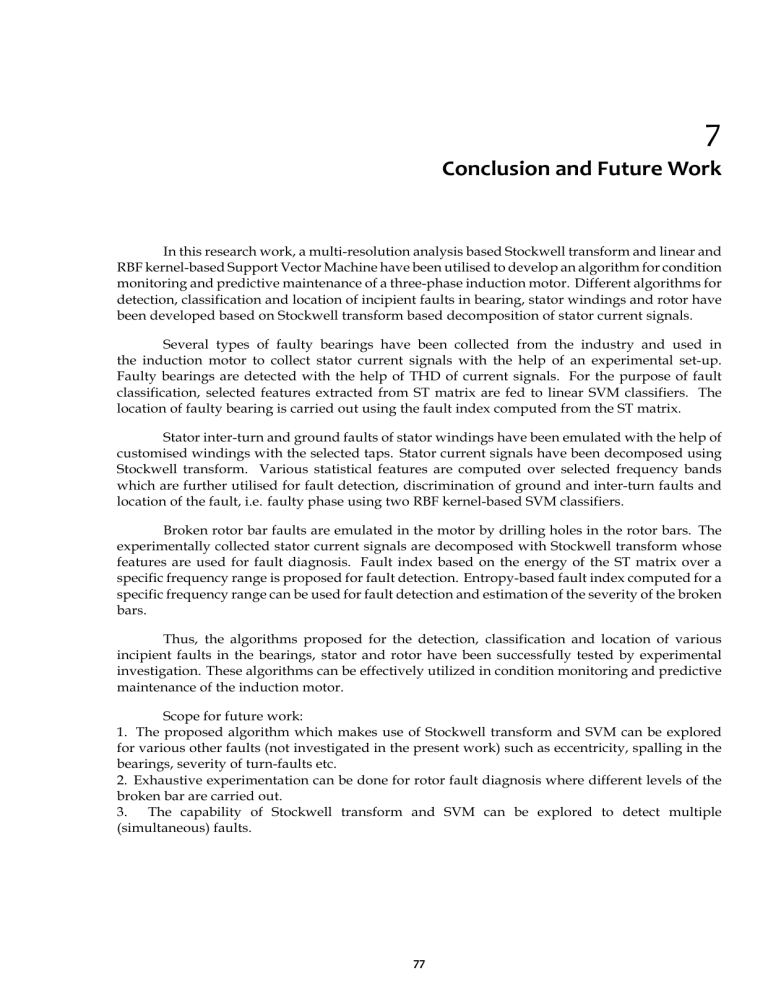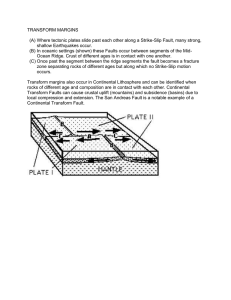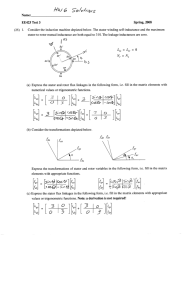
7 Conclusion and Future Work In this research work, a multi-resolution analysis based Stockwell transform and linear and RBF kernel-based Support Vector Machine have been utilised to develop an algorithm for condition monitoring and predictive maintenance of a three-phase induction motor. Different algorithms for detection, classification and location of incipient faults in bearing, stator windings and rotor have been developed based on Stockwell transform based decomposition of stator current signals. Several types of faulty bearings have been collected from the industry and used in the induction motor to collect stator current signals with the help of an experimental set-up. Faulty bearings are detected with the help of THD of current signals. For the purpose of fault classification, selected features extracted from ST matrix are fed to linear SVM classifiers. The location of faulty bearing is carried out using the fault index computed from the ST matrix. Stator inter-turn and ground faults of stator windings have been emulated with the help of customised windings with the selected taps. Stator current signals have been decomposed using Stockwell transform. Various statistical features are computed over selected frequency bands which are further utilised for fault detection, discrimination of ground and inter-turn faults and location of the fault, i.e. faulty phase using two RBF kernel-based SVM classifiers. Broken rotor bar faults are emulated in the motor by drilling holes in the rotor bars. The experimentally collected stator current signals are decomposed with Stockwell transform whose features are used for fault diagnosis. Fault index based on the energy of the ST matrix over a specific frequency range is proposed for fault detection. Entropy-based fault index computed for a specific frequency range can be used for fault detection and estimation of the severity of the broken bars. Thus, the algorithms proposed for the detection, classification and location of various incipient faults in the bearings, stator and rotor have been successfully tested by experimental investigation. These algorithms can be effectively utilized in condition monitoring and predictive maintenance of the induction motor. Scope for future work: 1. The proposed algorithm which makes use of Stockwell transform and SVM can be explored for various other faults (not investigated in the present work) such as eccentricity, spalling in the bearings, severity of turn-faults etc. 2. Exhaustive experimentation can be done for rotor fault diagnosis where different levels of the broken bar are carried out. 3. The capability of Stockwell transform and SVM can be explored to detect multiple (simultaneous) faults. 77



